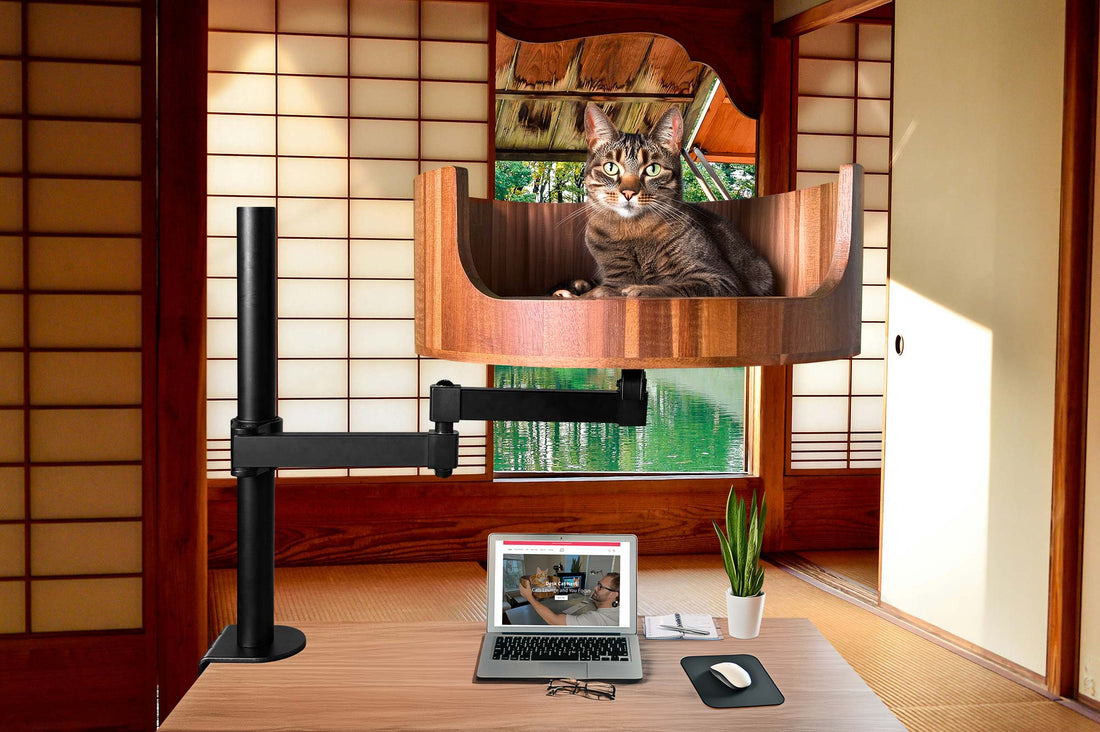
My Cat Stopped Eating: Understanding the Reasons Why
Share
If you're a cat owner, you know how concerning it can be when your feline friend suddenly stops eating. A loss of appetite in cats can be a sign of various underlying issues, ranging from minor stress to serious medical conditions. In this article, we will explore the common reasons why your cat may have stopped eating, and what you can do to help them get back on track to a healthy diet.
From dental problems and digestive issues to environmental stressors and underlying illnesses, there are numerous possibilities to consider when trying to determine why your cat has lost their appetite. Understanding the potential reasons behind their decreased food intake is crucial for providing the best care and treatment for your beloved pet. By learning more about the various factors that could be affecting your cat's eating habits, you can take the necessary steps to address the issue and ensure your furry companion's health and well-being.
1. Cats may stop eating due to stress, illness, dental problems, or even changes in their environment.
2. It is crucial to monitor your cat's eating habits closely and seek veterinary advice if they stop eating for more than 24 hours.
3. Dental issues are a common cause of appetite loss in cats, so regular dental check-ups are essential.
4. Ensuring a calm and comfortable environment for your cat can help prevent stress-related appetite loss.
5. Offering a variety of high-quality, palatable foods can entice your cat to start eating again.
Health Issues
When a cat stops eating, it could be due to various health issues. Dental problems, such as a broken tooth or gum disease, can make it painful for a cat to eat. Other possibilities include kidney disease, liver disease, or diabetes, all of which can affect a cat's appetite. If your cat stops eating, it is essential to take them to the veterinarian for a check-up to rule out any underlying health issues.
Stress or Anxiety
Cats are sensitive animals and can easily become stressed or anxious, leading to a loss of appetite. Changes in the cat's environment, such as moving to a new house, introducing a new pet, or even changes in the household routine, can trigger stress in cats. Providing a quiet and safe space for the cat, along with familiar items like toys and bedding, can help alleviate stress and encourage them to eat again.
Dietary Issues
The type of food you are feeding your cat could also be a reason why they have stopped eating. Cats can be picky eaters and may refuse a certain brand or flavor of food. It's essential to provide a balanced diet that meets their nutritional needs. Additionally, sudden changes in diet or feeding schedule can also lead to a loss of appetite in cats. Gradually transitioning to a new food or maintaining a consistent feeding schedule can help prevent this issue.
Dental Problems
Dental problems are a common reason why cats stop eating. Cats can suffer from dental issues such as gum disease, broken teeth, or oral tumors that can make eating painful. It's essential to regularly check your cat's teeth and gums for any signs of dental problems and to take them to the veterinarian for a dental check-up if needed. Additionally, providing dental treats or toys can help improve your cat's oral health and encourage them to eat.
Desk Cat Nest FAQs
Is the Desk Cat Nest suitable for cats who have stopped eating?
While the Desk Cat Nest is primarily designed for providing a comfortable resting spot for your cat, some cats may find comfort and security in a quiet and cozy space like the nest. However, it is important to consult with a veterinarian if your cat has stopped eating to address any underlying health issues.
Can the Desk Cat Nest help stimulate my cat's appetite?
The Desk Cat Nest is not designed specifically to stimulate your cat's appetite. It is important to address the root cause of why your cat has stopped eating, which may include medical issues, stress, or changes in their environment. Consult with a veterinarian for advice on how to encourage your cat to eat.
How can the Desk Cat Nest benefit my cat who has stopped eating?
The Desk Cat Nest can provide a quiet and secure space for your cat to rest and relax, which may help reduce stress and anxiety. While it may not directly address your cat's lack of appetite, creating a comfortable environment for your cat can contribute to their overall well-being.
Are there any other products or tips you recommend for cats who have stopped eating?
In addition to providing a comfortable resting spot like the Desk Cat Nest, it is important to consult with a veterinarian to rule out any underlying medical issues causing your cat to stop eating. They may recommend specific diets, medications, or treatments to address the issue. Additionally, ensuring your cat has access to fresh water and a quiet, stress-free environment can also help encourage them to eat.
In conclusion, providing your cat with a comfortable and secure space, such as the Desk Cat Bed, can help combat issues like a loss of appetite. This specially designed bed offers a cozy and inviting spot for your feline friend to relax and feel safe, ultimately encouraging them to eat and maintain their health. With features like soft cushioning and a secluded design, the Desk Cat Bed provides the perfect solution for pet owners whose cats have stopped eating. Invest in this valuable choice today to ensure your furry companion receives the care and comfort they deserve.



















































